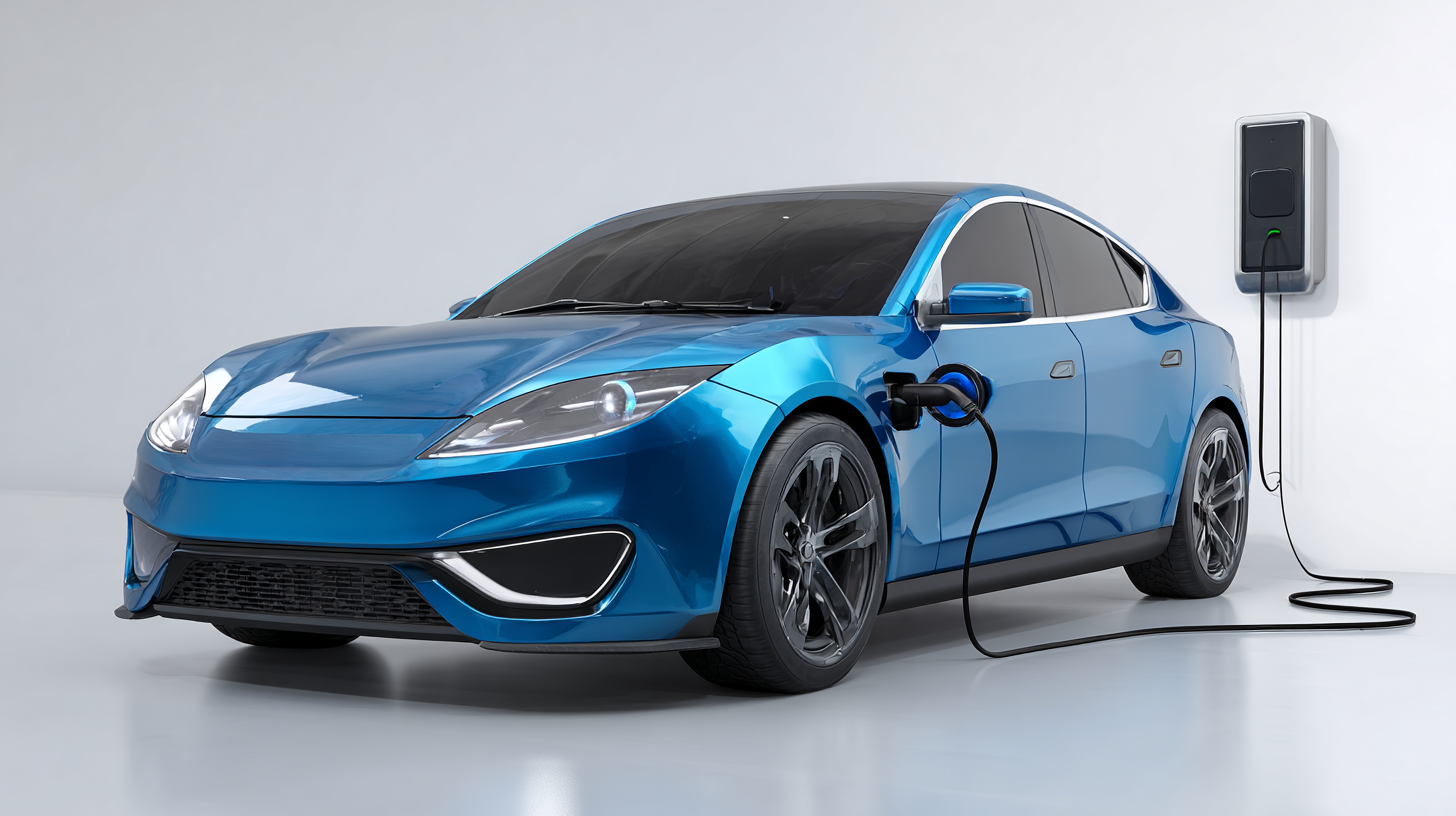Leave Your Message
As the automotive industry undergoes a significant transformation, the rise of the Electric Car Auto market is reshaping consumer preferences and setting new trends in transportation. According to a report by the International Energy Agency (IEA), electric vehicle sales surged by 54% in 2021, reaching 6.6 million units worldwide, despite ongoing global supply chain challenges. This growth is driven by the increasing environmental awareness among consumers, government incentives aimed at promoting cleaner technologies, and innovations in battery technology that enhance vehicle performance and range.

In this blog, we will provide a comprehensive tutorial on mastering the best Electric Car Auto options for global buyers, exploring the latest market trends, technological advancements, and key considerations for making informed purchasing decisions. Join us as we delve into the dynamic landscape of electric vehicles, where sustainability meets cutting-edge innovation.
The electric vehicle (EV) market has experienced significant transformation over the last decade, driven by a combination of technological advancements and shifting consumer preferences. According to a report by the International Energy Agency (IEA), global EV sales surged to over 6.6 million units in 2021, nearly doubling from the previous year. This remarkable growth underscores a broader trend toward sustainable transportation, with many governments worldwide setting ambitious targets for reducing carbon emissions and promoting zero-emission vehicles.
One of the most compelling trends in the EV industry is the increasing emphasis on battery technology. As per BloombergNEF's Electric Vehicle Outlook 2022, the price of lithium-ion batteries has declined by 89% since 2010, making electric cars more affordable. The continued innovation in battery chemistry, including solid-state batteries, promises to enhance the performance and range of electric vehicles. Additionally, businesses are increasingly investing in charging infrastructure, with a reported increase of 40% in public EV chargers from 2020 to 2021, leading to greater consumer confidence and convenience for prospective buyers.
In the evolving landscape of electric vehicles (EVs), understanding consumer preferences is crucial for manufacturers and marketers aiming to capture the global market. As more buyers turn to eco-friendly options, factors such as range anxiety, charging infrastructure, and vehicle performance become paramount. Research indicates that consumers are increasingly prioritizing sustainability, efficiency, and advanced technology when choosing their next vehicle. To leverage these insights, brands need to align their offerings with the values and needs of modern buyers.
Tips: To cater to diverse consumer demands, automakers should invest in robust research to identify regional preferences. For example, while buyers in urban areas may prioritize compact size and easy maneuverability, those in rural regions might focus on range and off-road capabilities. Moreover, leveraging social media and customer feedback can provide real-time insights into changing preferences, allowing for more agile responses to market trends.
Additionally, transparency in pricing and offering flexible financing options can significantly enhance consumer trust and attraction. Providing educational content about EV features and maintenance will also demystify the technology for many potential buyers, making them feel more confident in their purchases. By addressing these key areas, brands can cultivate loyal customer bases in the increasingly competitive electric vehicle market.
The electric vehicle (EV) market is witnessing unprecedented growth, driven by innovations in technology and a shift in consumer preferences towards sustainable transportation. According to a report by the International Energy Agency (IEA), global electric car stock surpassed 10 million units in 2020, and this number is projected to reach 145 million by 2030, fueled by advancements in battery technology and charging infrastructure. Key innovations such as solid-state batteries promise to enhance energy density, reduce charging times, and improve overall vehicle performance, making EVs more appealing to a broader audience.
Moreover, the integration of Artificial Intelligence (AI) and the Internet of Things (IoT) in electric cars is redefining user experience and vehicle efficiency. Companies like Tesla and Rivian are leading the charge by incorporating advanced driver-assistance systems that leverage AI to enhance safety and convenience. According to BloombergNEF, the cost of EV batteries fell by 89% from 2010 to 2020, making electric vehicles increasingly affordable. As automakers continue to invest in research and development, the landscape of electric vehicles will evolve, meeting global buyers' expectations for innovation and sustainability.

In the rapidly evolving electric vehicle (EV) market, finding reliable suppliers is crucial for businesses looking to stay competitive. According to a comprehensive report by McKinsey, the global EV market is projected to grow at a rate of 30% annually, reaching over 54 million units by 2040. This explosive growth highlights the importance of establishing partnerships with dependable manufacturers and component suppliers who can meet increasing demand while maintaining high quality standards.
When seeking suppliers, businesses should prioritize those with proven track records in the EV sector, such as companies that have been recognized for their innovative technologies and sustainability practices. Data from BloombergNEF emphasizes that investments in EV infrastructure, including charging stations, could exceed $500 billion globally by 2025. Companies that align themselves with established players in this infrastructure landscape not only benefit from enhanced supply chains but also gain access to vital market insights that guide product development and consumer engagement strategies. As the EV market continues to mature, creating a robust network of trustworthy suppliers will be essential for any company's long-term success.

As the electric vehicle (EV) market continues to expand globally, understanding and navigating the regulatory landscape becomes increasingly crucial for both manufacturers and consumers. Regulations vary significantly from country to country, often impacting everything from car design to battery disposal. For instance, the European Union has implemented stringent emissions targets, prompting automakers to innovate rapidly to comply with these standards. This regulatory environment not only drives technological advancements but also fosters consumer trust in EVs as a sustainable choice.
Additionally, governments are leveraging regulatory measures to promote electric vehicle adoption through incentives and subsidies. Tax breaks, rebates, and grants for EV purchases can significantly influence a buyer's decision, making previously unaffordable models accessible. However, challenges such as inconsistent policies and bureaucratic delays can create barriers. Understanding these dynamics is essential for global buyers looking to make informed decisions about their next electric vehicle purchase. Engaging with local industry experts and staying updated on regulatory changes can empower consumers to navigate this evolving landscape successfully.
